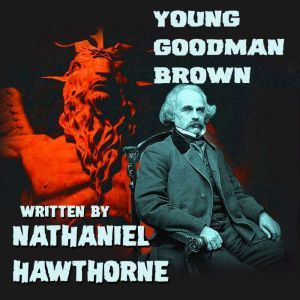

Young Goodman Brown
Author: Nathaniel Hawthorne
Narrator: Edward E. French
Unabridged: 33 min
Format: Digital Audiobook Download
Publisher: Author's Republic
Published: 05/31/2020
Categories: Fiction, Fantasy, Historical Fiction


Author: Nathaniel Hawthorne
Narrator: Edward E. French
Unabridged: 33 min
Format: Digital Audiobook Download
Publisher: Author's Republic
Published: 05/31/2020
Categories: Fiction, Fantasy, Historical Fiction
Nathaniel Hawthorne (1804–1864) was born in Salem, Massachusetts. His father was a sea captain and descendent of John Hathorne, one of the judges in the Salem witchcraft trials of 1692. Nathaniel was educated at Bowdoin College in Maine, where he made friends with Henry Wadsworth Longfellow, who later became a distinguished poet.
Hawthorne's first novel, Fanshaw: A Tale, appeared anonymously at his own expense in 1828. The novel was badly written and was received poorly. Disillusioned, Hawthorne did not publish another novel for nearly twenty-five years but continued to write short stories for magazines, and in 1837, he was able to publish a collection of these, which he titled Twice-Told Tales. However, he was unable to support himself with his writing, and he tried his hand at community farming-unsuccessfully.
Hawthorne married Sophia Amelia Peabody in 1842, and they moved to Concord, Massachusetts, to settle in the now-famous "Old Manse." It was here that he was surrounded by the leading literary figures of the day, including: Henry David Thoreau, Ralph Waldo Emerson, Margaret Fuller, and Bronson Alcott. He later befriended Herman Melville who dedicated Moby Dick to him. Needing financial security, after having two children, Hawthorne took the position of surveyor for the port of Salem. Three years later, a shift in political parties ended that career for Hawthorne, which granted him the time to complete The Scarlet Letter. It was marginally successful in his time, and it allowed him to continue writing novels and children's books full-time. Hawthorne aspired to become one of the first American authors to explore the hidden motivations of his characters-to reveal their passions, emotions, and anxieties, exposing "the truth of the human heart."
Hawthorne was appointed consul in Liverpool, England, by his old friend, Franklin Pierce, who had become president in 1853. The Hawthornes lived in Europe for the next seven years, where he wrote his final complete work of fiction, The Marble Faun. Hawthorne died in his sleep in 1864 in Plymouth, New Hampshire, while on a trip to the mountains.
Puritans were the worst. I blame them for maybe half of what's still wrong with America.......more
Another grad seminar read, or re-read. It is odd that I always favored Poe over Hawthorne in my younger days, but my tastes have definitely changed. I found myself liking Hawthorne and yet still baffled by his simple description filled with allusion. If I have a chance, I might give Poe and Hawthorn......more
"Flower and maiden were different, and yet the same, and fraught with some strange peril in either shape." At last I've wrapped up Hawthorne's short stories. Though they were a mixed bag and occasionally somewhat dense, I generally enjoyed the descriptive prose and bittersweet cautionary Gothic tones......more
Read this in 2020. Definitely was a bit hard to read considering the dark subject matter with the timing of, you know, worldwide pandemic. But very good, rich stories. I don't believe we read all of the stories for my "Great Books of the World" class, but the ones I remember best are: -Young Goodman......more
I got this out of the library to read “Rappaccini’s Daughter” after reading “The Strange Case of the Alchemist’s Daughter,” which adapted her as a character. I liked it, but not enough to continue reading Hawthorne at present. I’ve never been enamored of his writing style, and working my way through......more